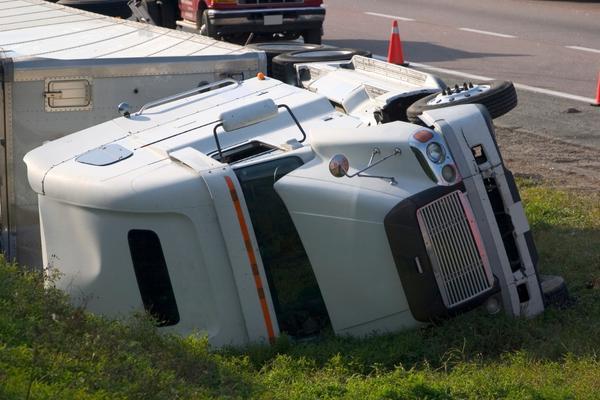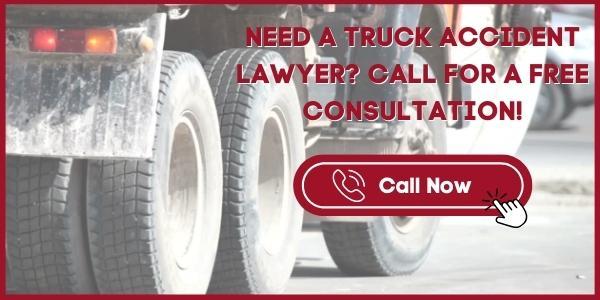All drivers in every state need a valid driver’s license to operate a vehicle on public roads.
Each state governs the licensing of its drivers, but most states adhere to the Uniform Vehicle Code.
Drivers with valid licenses in one jurisdiction can safely operate a vehicle in another state because to the uniformity of licensing laws.
States have an interstate agreement that ensures a driver with a license from one state can lawfully drive in all states because they all have equivalent licensing criteria.
But things are a little more complicated regarding commercial truck drivers.
There are federal laws regulating commercial drivers.
Regulations add rules commercial drivers must follow, like the number of consecutive hours they can drive without a break and how many hours off duty they have to have before they can drive again.
These regulations keep everyone safe and help avoid trucking accidents.
In the article below, we will discuss the additional rules and regulations truck drivers have to follow.
- What’s Considered A Commercial Vehicle?
- Regulations That Apply To Trucking Companies
- Special Laws For Truck Drivers
- Hours Of Service Restrictions
- Adverse Driving Conditions Exception
- Truck Driver Logs
- Enhanced Insurance Rules
- Inspection Requirements
- How These Special Rules Affect Liability in Collisions with Large Trucks
- Contact A Truck Accident Attorney Today
What’s Considered A Commercial Vehicle?
A commercial motor vehicle is defined by law as any vehicle used or maintained for the transportation of persons or property for compensation or hire.
This includes buses, trucks, vans, tractor trailers, dump trucks, and more.
In most cases, you must carry liability insurance while operating a commercial vehicle.
You could face fines and penalties if you fail to maintain the required insurance.
Regulations That Apply To Trucking Companies
The trucking industry has several additional rules and regulations, some of which apply to the trucking companies.
One of the most important rules they must follow is testing for drugs and alcohol.
The Federal Motor Carrier Safety Administration, FMCSA, says that trucking companies must conduct drug testing on all of their drivers of commercial motor vehicles.
Although laboratories and service representatives might be hired by trucking businesses to do the testing, the employer of the driver is ultimately responsible.
The trucking company can receive civil penalties if they don’t comply with the regulations.
After an accident involving injuries, truck drivers must be tested for alcohol and controlled substances as soon as practicable to see if they are over the legal limit.
If the controlled drug test does not take place within 32 hours of the accident and the alcohol test does not take place within eight hours of the collision, the employer must explain why the tests were not conducted.
Special Laws For Truck Drivers
The trucking industry is one of America’s most dangerous professions.
More than 2 million people work in the transportation sector, and about 40,000 die yearly from occupational injuries and fatalities.
According to the National Highway Traffic Safety Administration (NHTSA), commercial motor vehicle crashes are the leading cause of death among young men aged 15–24.
A study by the NHTSA found that nearly half of fatal accidents involve commercial trucks.
Truckers face many dangers on the road every day.
They risk being involved in collisions, getting into accidents caused by distracted driving, falling asleep behind the wheel, and even dying in a crash.
In response to these risks, Congress passed several special laws designed to protect the public and drivers.

Hours Of Service Restrictions
The hours of service regulations ensure safety for commercial vehicle operators and passengers.
They require drivers to rest every eight hours during driving shifts and limit how long a driver can work without taking breaks.
But unfortunately, some companies encourage drivers to ignore those rules to meet strict deadlines.
In January 2018, the National Transportation Safety Board (NTSB) investigated a fatal crash involving a tractor-trailer operated by a driver who worked for a trucking company that encouraged him to operate his rig for longer periods of time.
NTSB investigators found that the driver had driven for 14 straight hours before the accident.
Another investigation into a deadly crash revealed that the driver had been operating for 16 hours straight prior to the collision.
In both cases, the truckers ignored the hours of service requirements and drove beyond the prescribed limits.
A recent report showed that the number of hours of service violations increased by nearly 50% in 2017 compared to 2016.
And according to the Federal Motor Carrier Safety Administration, there were 4,858 incidents of fatigue-related crashes in 2017.
Some trucking companies think paying a fine is better than losing money because of delayed shipment.
Adverse Driving Conditions Exception
The Adverse Driving Condition Exception allows drivers to extend the maximum driving limit by two hours during adverse weather conditions.
This includes thunderstorms, heavy rain, snow, sleet, hail, high winds, fog, dust storms, extreme heat, extreme cold, freezing temperatures, and anything else that might force the truck off the road.
Drivers must travel to a designated area to take advantage of the exception.
They must stop at the designated location and wait for the adverse weather to clear before proceeding on the trip.
Once the adverse weather clears, they must return to their home base before continuing their trip.
Truck Driver Logs
Commercial truck drivers must also keep records of every trip they take.
Their driver logs should include information such as where you picked up the load, how long it took to complete the route, what type of truck you used, etc.
These records help prove negligence in lawsuits.
These logs used to be handwritten, but now FMCSA requires most drivers to use electronic logging devices (ELDs) instead.
If there is evidence that a driver did something wrong, he could be held liable for damages caused by his actions.
There are also penalties for incomplete logs.
Enhanced Insurance Rules
Truck drivers also have special insurance rules.
For example, drivers transporting hazardous materials must carry an enhanced liability insurance policy.
This includes a minimum of $750,000/$5 million in liability insurance coverage per incident.
CMVs transporting hazardous materials must also meet certain weight and size restrictions.
Inspection Requirements
Truck drivers are required to inspect their vehicles before, during, and post-trip.
This includes checking the tires, inspecting the load, making sure there are no leaks, and ensuring that the vehicle is properly loaded and secured.
If you fail to do this, you could receive fines and penalties.

How These Special Rules Affect Liability in Collisions with Large Trucks
If truck drivers don’t follow their additional regulations and take enough rest breaks, follow posted speed limits, keep proper hours, and ensure that they do not drive while fatigued, they could face legal action if there is an accident.
The purpose of the special laws and regulations that apply to truck drivers is to keep truckers and the general public safe.
When a trucking company or driver breaks the law and the violation causes someone to get hurt, the company, driver, or a third party may be liable.
Contact A Truck Accident Attorney Today
Truck accidents are one of the most catastrophic types of car crashes.
They happen every day across America.
If you’ve been injured in a truck crash because the driver or trucking company wasn’t following the rules, it’s essential to know how to protect yourself and your legal rights.
The Shunnarah Trial Attorneys have advocated for truck accident victims for years and can discuss your case.
Reach out to a personal injury lawyer at Schuerger Shunnarah Trial Attorneys to schedule a free consultation.
Get a free case evaluation from an expert truck accident lawyer without worrying about commitment and learn how to get the financial compensation you deserve.






